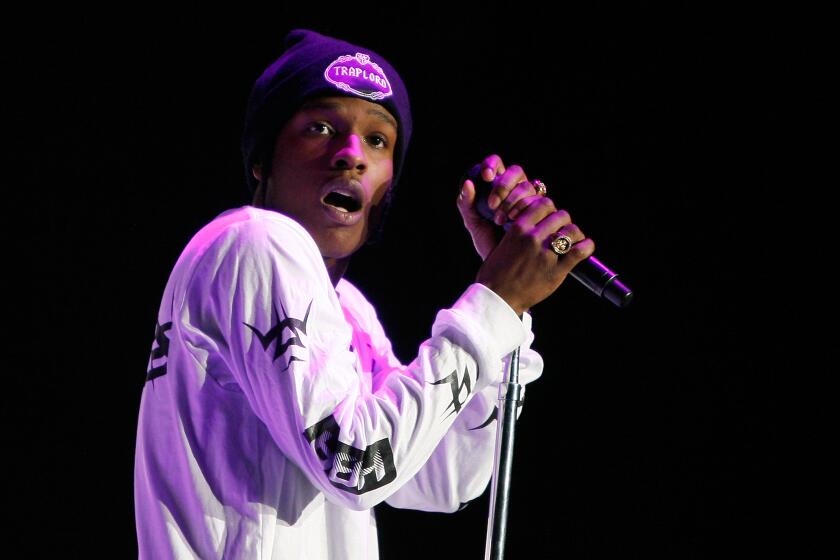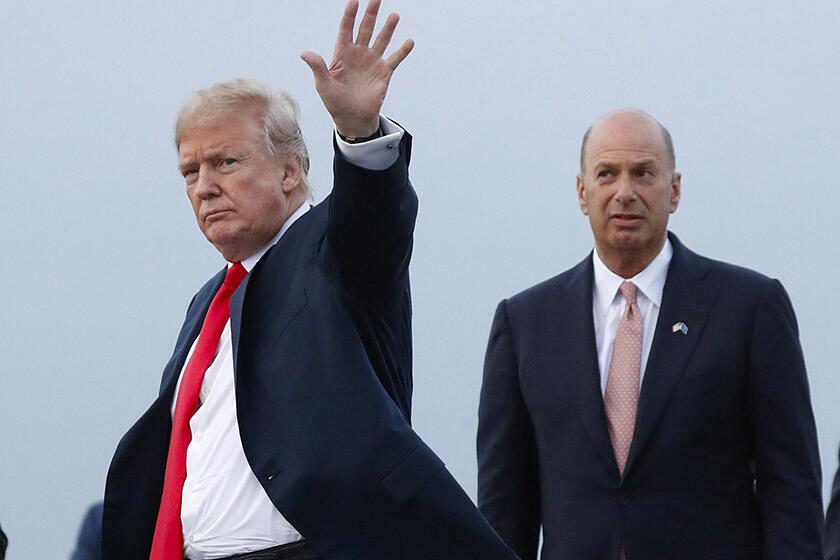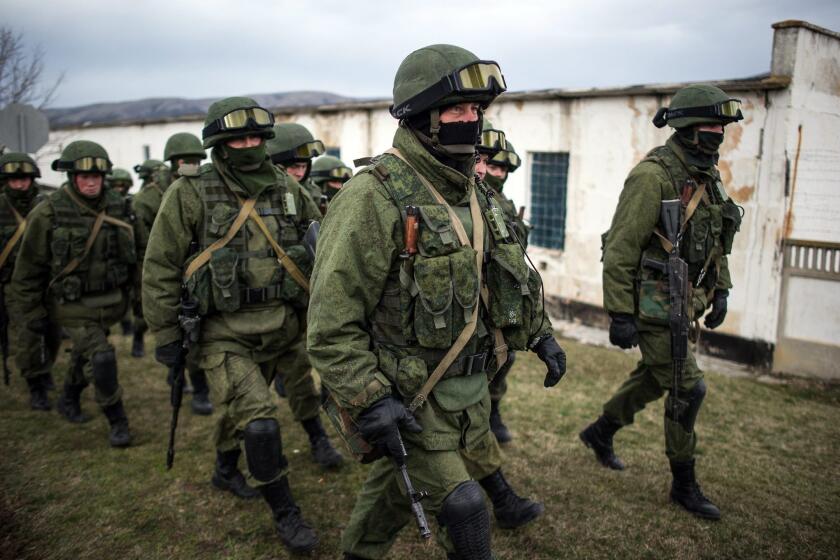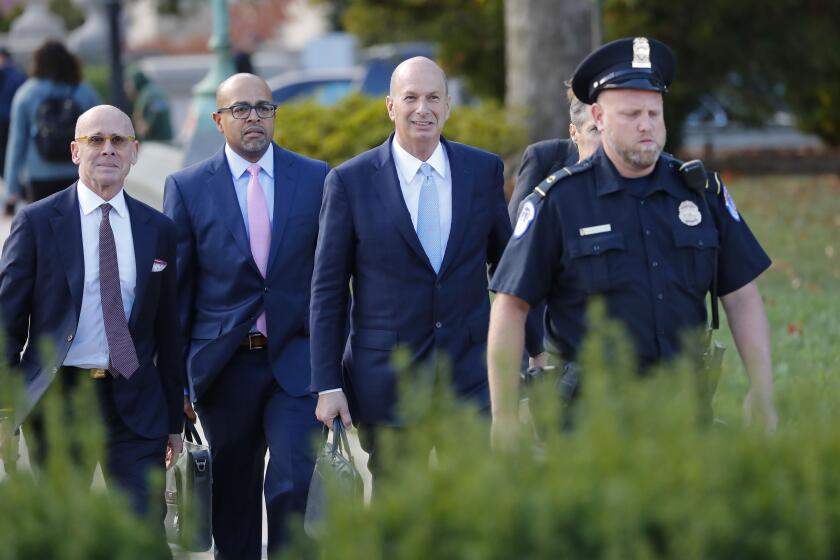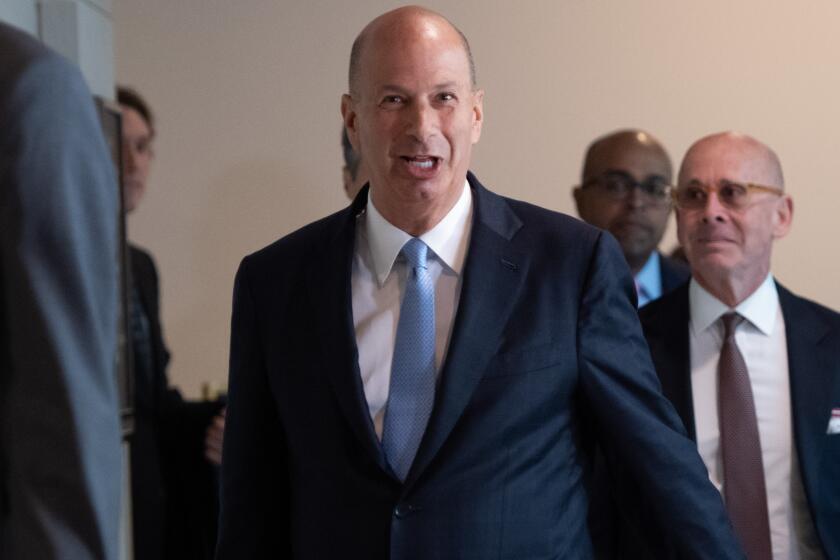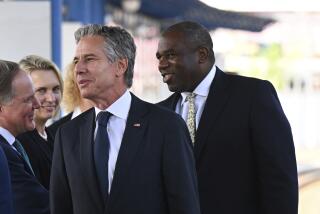Trump impeachment hearing live updates: Ukrainians asked about U.S. aid hours after July 25 Trump call

Gordon Sondland, U.S. ambassador to the European Union, has emerged as a pivotal link between the president and a shadow foreign policy led by Rudolph W. Giuliani.
State Department official praises recalled Ukraine Ambassador Yovanovich
Updated at 7:39 p.m. ET
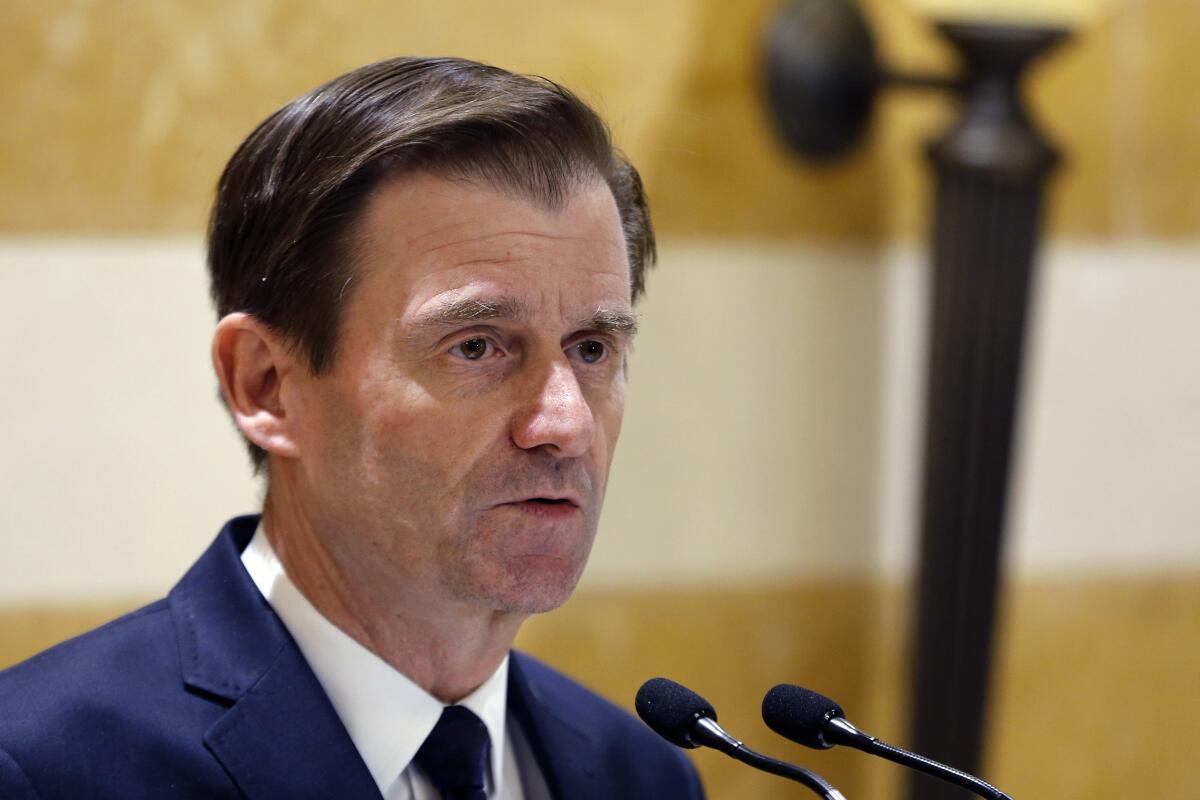
Rep. Dennis Heck (D-Wash.) asked David Hale, the undersecretary of State for political affairs who was stationed in Kyiv, Ukraine, for an assessment of former U.S. Ambassador to Ukraine Marie Yovanovitch, whom Trump recalled at the height of a smear campaign apparently directed by Rudolph W. Giuliani.
Upon meeting Yovanovitch this year, Hale said: “I immediately understood we had an exceptional officer doing exceptional work.... I believe she should have been able to stay at post and continue the outstanding work she was doing.”
It was the most significant endorsement Yovanovitch has received from a senior State Department official. Secretary of State Michael R. Pompeo has refused to defend her publicly.
Hale added that State Department employees who testified under subpoena at the hearing would not be punished, addressing concerns that some diplomats have voiced. Employees were notified of that in a Nov. 18 letter. A legal fund has also been set up for them.
Pentagon official says Ukrainian officials asked about U.S. aid on July 25
Updated 6:29 p.m. ET
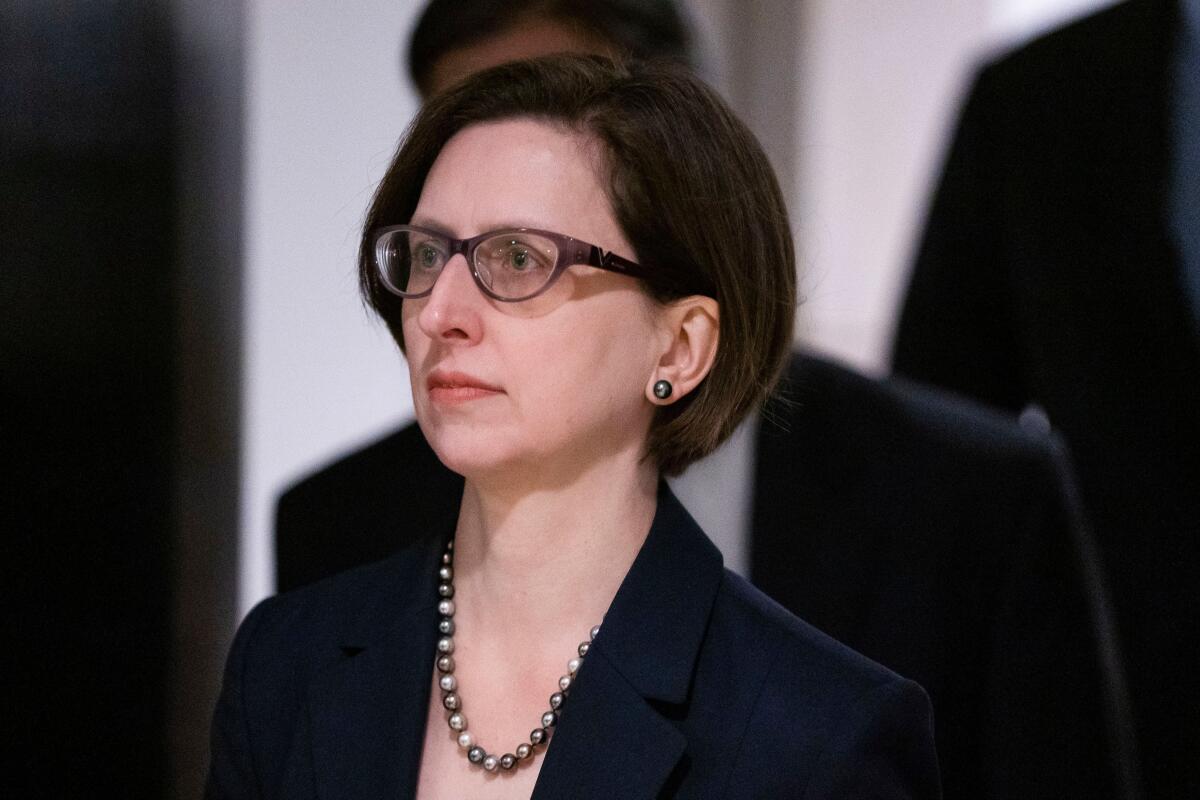
Ukrainian officials raised questions about nearly $400 million in U.S. aid on the same day as the phone call between President Trump and Ukrainian President Zelensky, Laura Cooper, a Pentagon official specializing in Ukraine, told lawmakers Wednesday.
The new details suggest Ukraine learned much earlier than previously known that the Trump administration was withholding the aid.
Cooper, a deputy assistant secretary at the Department of Defense, described two emails received by the State Department within about two hours of each other on July 25, the same day Trump asked Zelensky to launch investigations into his political rivals as a “favor.” A White House account of the call does not mention the issue of the aid coming up during the call.
The issue of exactly when Ukrainians learned about the delay is crucial because Republicans argue that there could be no quid pro quo if Ukrainians were not aware that the aid was being withheld.
House Intelligence Committee Chairman Adam B. Schiff (D-Burbank) told Cooper that three other witnesses had testified that “the Ukrainians found out [about] a problem or hold on the security assistance prior to it becoming public. But you’re the first to indicate that that may go back as early as the date of the president’s call with President Zelensky.”
The aid was released in September, after Congress began looking into the situation and a whistleblower filed a complaint about it.
One email described both the Ukrainian Embassy and House Foreign Affairs Committee as inquiring about the assistance. The second email described the Ukrainian Embassy and the Hill newspaper as knowing about the situation.
Cooper said she did not personally receive the emails. She said her staff recently informed her about the emails, and that she had not been aware of them when giving her previous closed-door deposition.
A Ukrainian official contacted her office on that same day, Cooper said, and asked “what was going on” with the assistance.
Cooper said she believed there were additional meetings in August when her staff recalled “the topic came up,” but she could not recall details. She said she never got a full explanation for why the aid was frozen.
Rep. John Ratcliffe (R-Texas) pressed Cooper about whether the emails proved that the Ukrainian’s knew the aid was being withheld.
“I cannot say for certain,” Cooper said, but she added that it would be unusual for the embassy to make a general inquiry of that sort without being prompted by a specific issue or concern.
Pompeo denies Sondland’s claims that he was aware of quid pro quo
Updated 4 p.m. ET
As he flew back to Washington from a NATO meeting in Brussels, Secretary of State Michael R. Pompeo on Wednesday afternoon issued a denial through his spokeswoman of assertions by Gordon Sondland that Pompeo was aware there was a quid pro quo in releasing aid to Ukraine.
“Gordon Sondland never told Secretary Pompeo that he believed the president was linking aid to investigations of political opponents,” the spokeswoman, Morgan Ortagus, said. “Any suggestion to the contrary is flat out false.”
Rapper ASAP Rocky has a new claim to fame: minor player in the House impeachment inquiry into President Trump.
Democratic lawmaker mocks Sondland for saying he’s been ‘really forthright’
Updated 3:44 p.m. ET
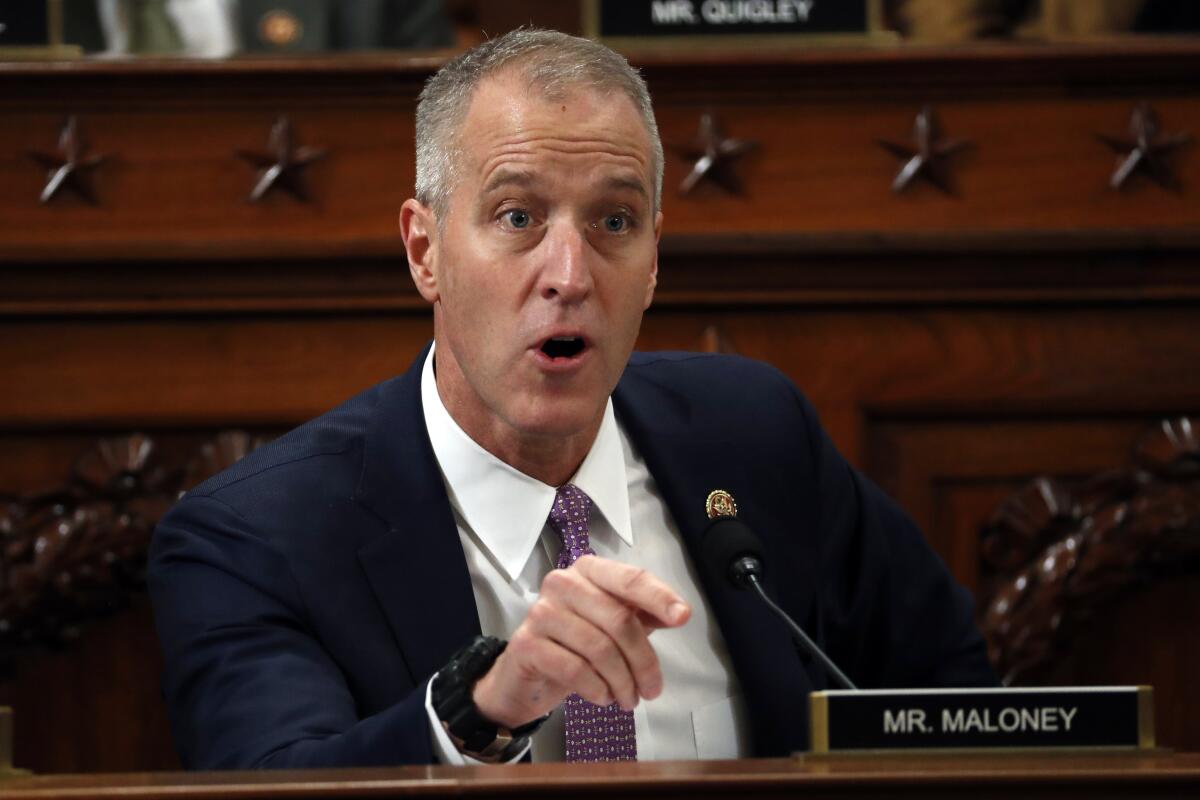
For much of his testimony, Gordon Sondland was cooperative and smiling. But his impatience began to show by the afternoon, particularly after his appearance took longer than expected and he feared he would miss his evening flight back to Brussels.
At one point, Rep. Sean Patrick Maloney (D-N.Y.) repeatedly pushed Sondland to acknowledge that Trump would be the person who would personally benefit if Ukraine agreed to his demands that it investigate his political rivals.
“Who would benefit from an investigation of the Bidens?” Maloney asked repeatedly.
“I assume President Trump would,” Sondland eventually answered.
“There we have it!” Maloney says sarcastically. “Didn’t hurt a bit, did it?”
Frustrated when the audience burst into applause, Sondland said he was trying to be forthright with the committee and didn’t appreciate Maloney’s line of questioning.
“Mr. Maloney, excuse me, I’ve been really forthright and I resent what you’re trying to do,” Sondland said.
Maloney shot back that Sondland had no basis for being frustrated since he had repeatedly changed his version of events. After an October deposition, Sondland had to file a supplemental declaration after other witnesses contradicted his assertions. And his public testimony Wednesday included many significant details that were new.
“We got a doozy of a statement from you this morning,” Maloney said sharply. “There’s a whole bunch of stuff you don’t recall. With all due respect, sir, we respect your candor, but let’s be clear about what it took to get it out of you.”
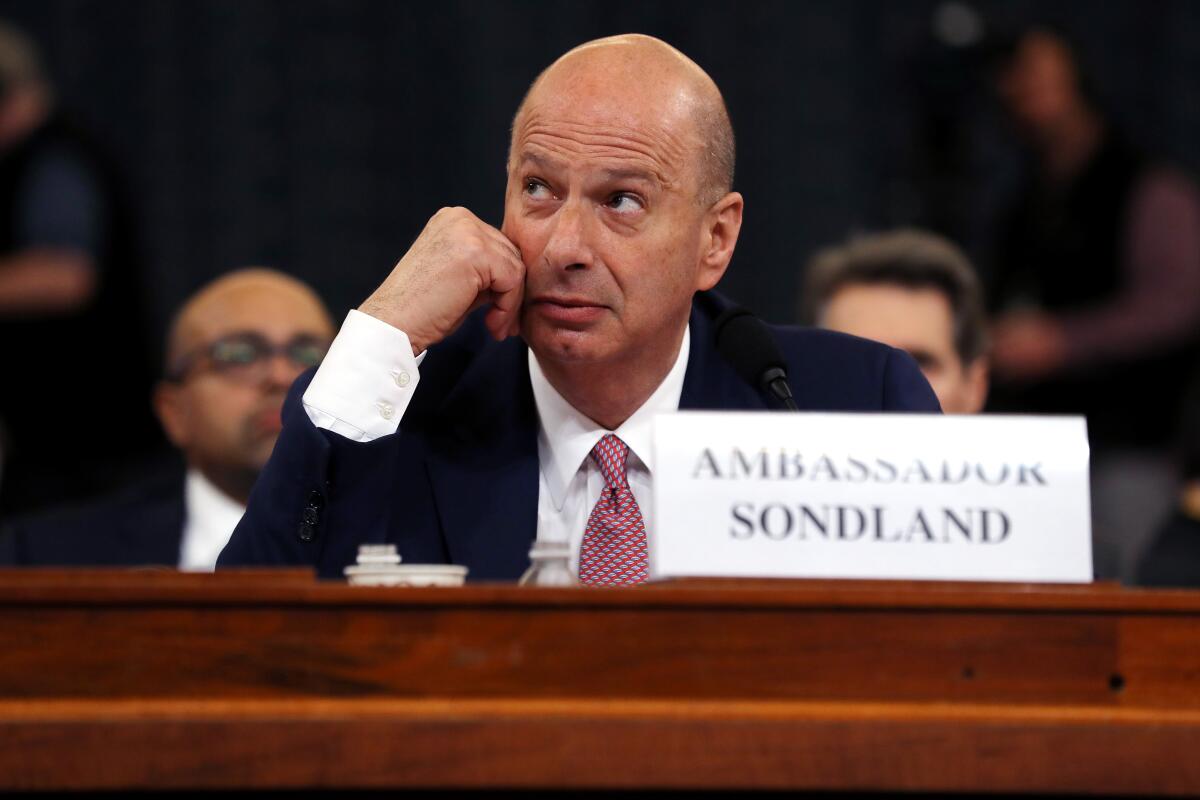
Some GOP lawmakers go on offense against Sondland
Updated at 2:37 p.m. ET
Republicans aggressively questioned Gordon Sondland for presuming that U.S. military aid to Ukraine was being withheld until Ukrainian President Zelensky publicly agreed to the investigations Trump wanted.
“So you really have no testimony today that ties President Trump to a scheme to withhold aid from Ukraine in exchange for these investigations,” Rep. Michael R. Turner (R-Ohio) said.
Sondland replied, “Other than my own presumption.”
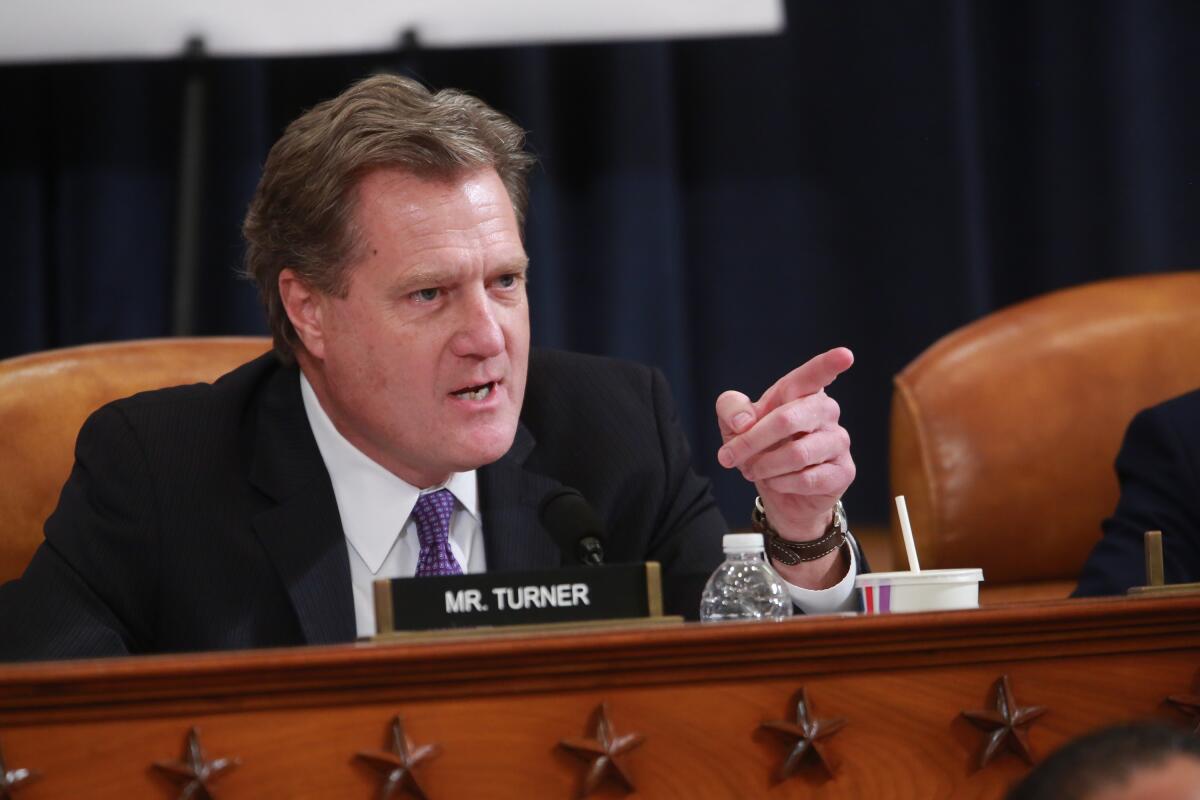
Turner suggested his testimony was misleading. “You left people with the confusing impression you were giving testimony you did not. You do not have any ... evidence that the president was tied to holding aid from Ukraine,” Turner said.
Turner and other members also criticized Sondland for changes in his testimony from his original deposition. “Not only are your answers somewhat circular, frequently you’ve contradicted yourself in your own answer,” Turner said.
Rep. Jim Jordan (R-Ohio) took issue with Sondland not mentioning in his opening statement that Trump had told him during a Sept. 9 call that there was no quid pro quo. Sondland replied that it was a lengthy statement and he figured people would ask about it if they had questions because that fact was already public.
Pence denies that Sondland raised issue of link between aid and investigation
Updated at 12:58 p.m. ET
Vice President Mike Pence wasted little time Wednesday pushing back on Ambassador Gordon Sondland’s testimony that “everyone was in the loop” about President Trump’s intention to withhold nearly $400 million in aid to Ukraine and a White House meeting with the country’s new president until leaders in Kyiv made a public declaration that they were investigating his political rival, Joe Biden.
Pence’s chief of staff, Marc Short, issued a statement claiming that the Sept. 1 conversation between Pence and Sondland in Poland on the eve of the vice president’s meeting with Ukraine President Volodymyr Zelensky “never happened.”
Sondland, testifying under oath, said, “I mentioned to Vice President Pence before the meetings with the Ukrainians that I had concerns that the delay in [U.S. military aid to Ukraine] had become tied to the issue of investigations,” Sondland said. “I recall mentioning that before the Zelensky meeting.”
Almost everyone in Trump’s orbit confronts the same dilemma, sooner or later: Stick with Trump and risk lasting damage, or break away and hope to survive his wrath. Gordon Sondland broke away in spectacular fashion.
Short, in a statement, dismissed that account.”The vice president never had a conversation with Gordon Sondland about investigating the Bidens, Burisma, or the conditional release of financial aid to Ukraine based upon potential investigations,” Short said. “Ambassador Gordon Sondland was never alone with Vice President Pence on the Sept. 1 trip to Poland. This alleged discussion recalled by Ambassador Sondland never happened.”
Short added: “Multiple witnesses have testified under oath that Vice President Pence never raised Hunter Biden, former Vice President Joe Biden, CrowdStrike, Burisma, or investigations in any conversation with Ukrainians or President Zelensky before, during, or after the Sept. 1 meeting in Poland.”
After Short’s statement was issued, the Democratic attorney, Daniel Goldman, asked Sondland to recall more details about the meeting, which he explained included more people than just he and Pence.
Pence, Sondland said, “heard what I said. But I don’t recall any substantive response.”
Pence has been intent on distancing himself from the matter at the center of the Democratic impeachment inquiry, and has refused to cooperate with the investigation.
Republicans emphasize Sondland’s shaky memory, lack of notes
Updated 12:26 p.m. ET
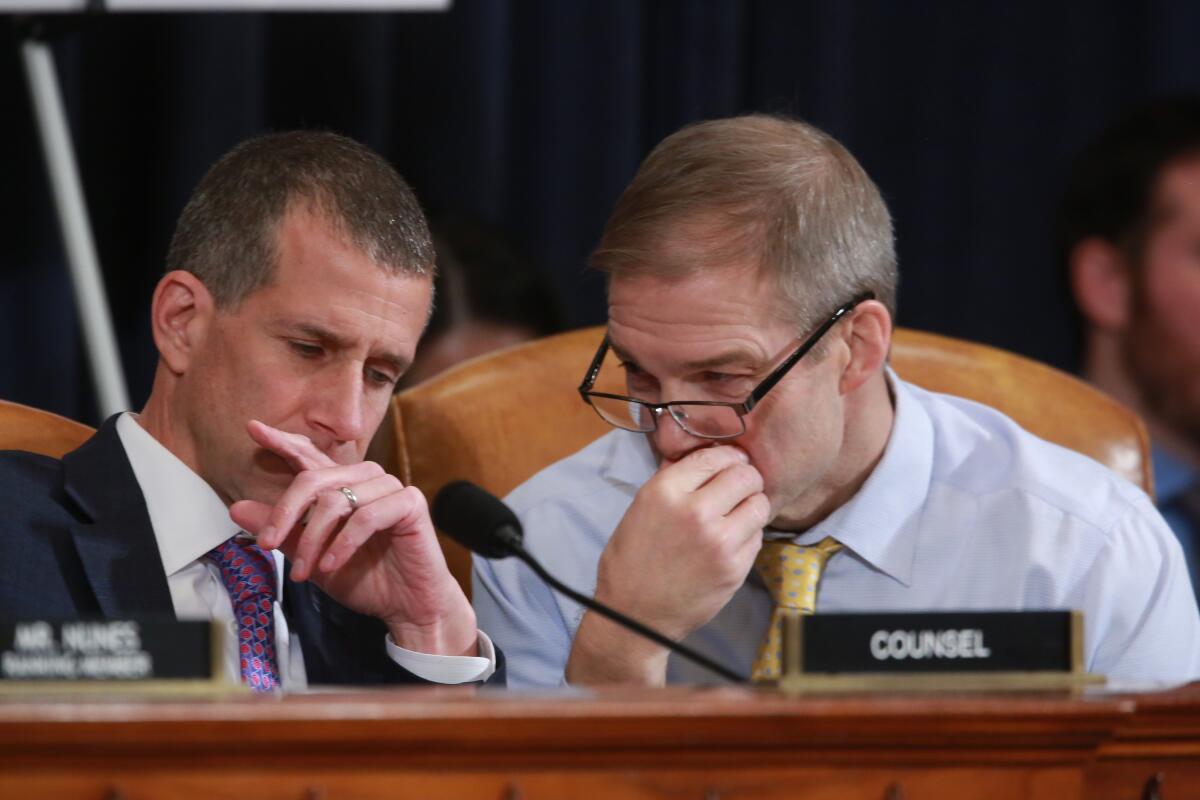
GOP counsel Steve Castor appeared to seek to discredit some of Sondland’s testimony, noting that the EU ambassador could not recall some information, did not take notes, did not have access to some of his records, revised his original deposition and gave accounts that differed from other witnesses.
“You don’t have records. You don’t have your notes because you didn’t take notes. You don’t have a lot of recollections. This is like the trifecta of unreliability, isn’t that true?” Castor said.
Sondland replied, “I think I’ve filled in a lot of blanks. ...”
Castor responded, “We’re talking about an impeachment of the president of the United States, so the evidence here ought to be pretty darn good.”
Sondland again blamed the White House and State Department for not releasing documents that might help him confirm his recollections, adding that he is “trying to use the limited information that I have to be as forthcoming as possible with you and the committee.”
Pompeo left Ukraine dealings to Giuliani, Sondland says
Updated at 12:07 p.m. ET
Gordon Sondland’s remarks put a harsher spotlight on the role played in the Ukraine matter by Secretary of State Michael R. Pompeo.
Sondland repeatedly said he kept State Department leadership, including Pompeo, informed of this dealings with Ukraine.
He described a secretary of State who seemed willing to outsource sensitive diplomacy to the president’s personal attorney. On July 10, Sondland recalled, while he, then-U.S. Ukrainian envoy Kurt Volker and Energy Secretary Rick Perry met with Ukrainians in Washington, Trump’s personal attorney Rudolph W. Giuliani was communicating with the now-disgraced former prosecutor in Kyiv, Yuri Lutsenko, the person behind many of the conspiracy theories that Giuliani was peddling.
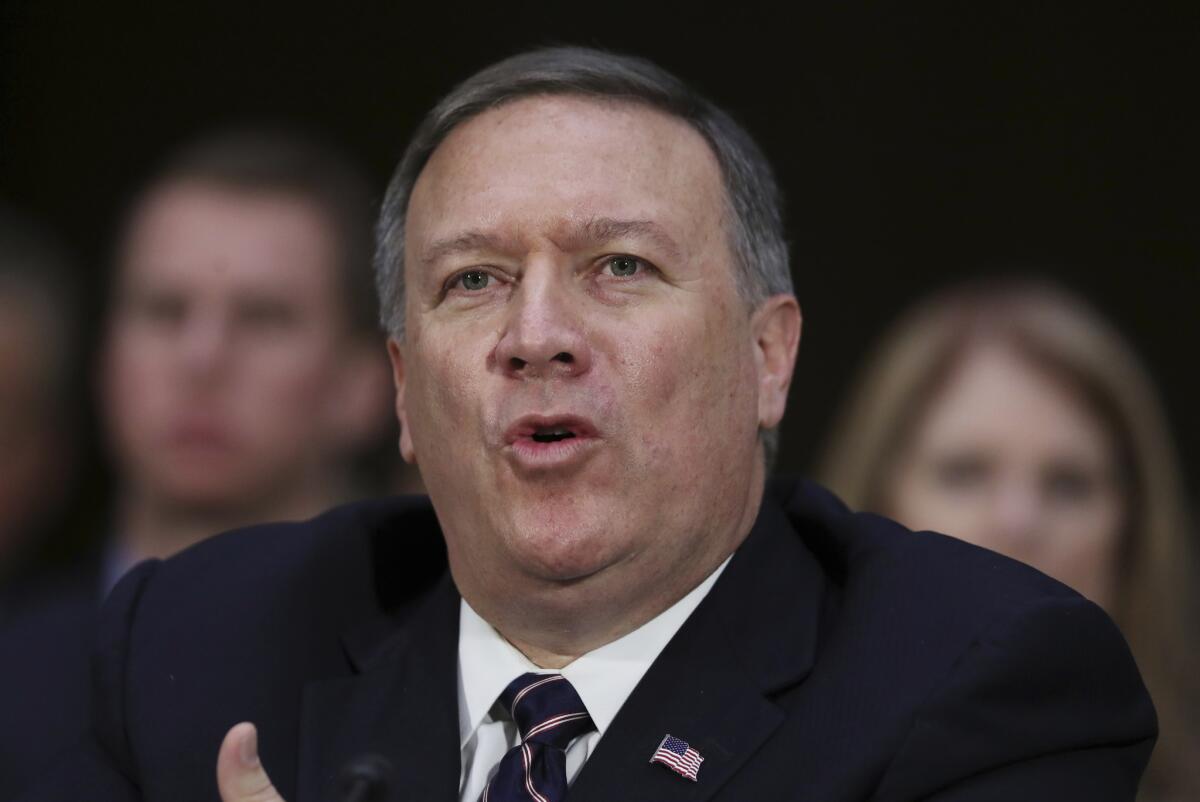
Lutsenko, speaking to senior Ukrainians officials, quoted Giuliani as saying a Trump-Zelensky meeting would not take place, according to an account by the senior U.S. diplomat in Ukraine, William Taylor.
“Good grief,” Volker responded to Taylor, according to WhatsApp messages that Sondland presented in the hearing. “Please tell Vadym [Ukraine Foreign Minister Vadym Pristaiko] to let the official USG representatives speak for the U.S.”
Still, however, Pompeo continued to instruct Volker to speak to Giuliani at least as late as Sept. 24, Sondland said.
“We tried to fix the problem, while keeping the State Department and the [National Security Council] closely apprised of the challenges we faced,” he said.
Trump distances himself from Sondland, calls him ‘a nice guy’
Updated at 11:47 a.m. ET
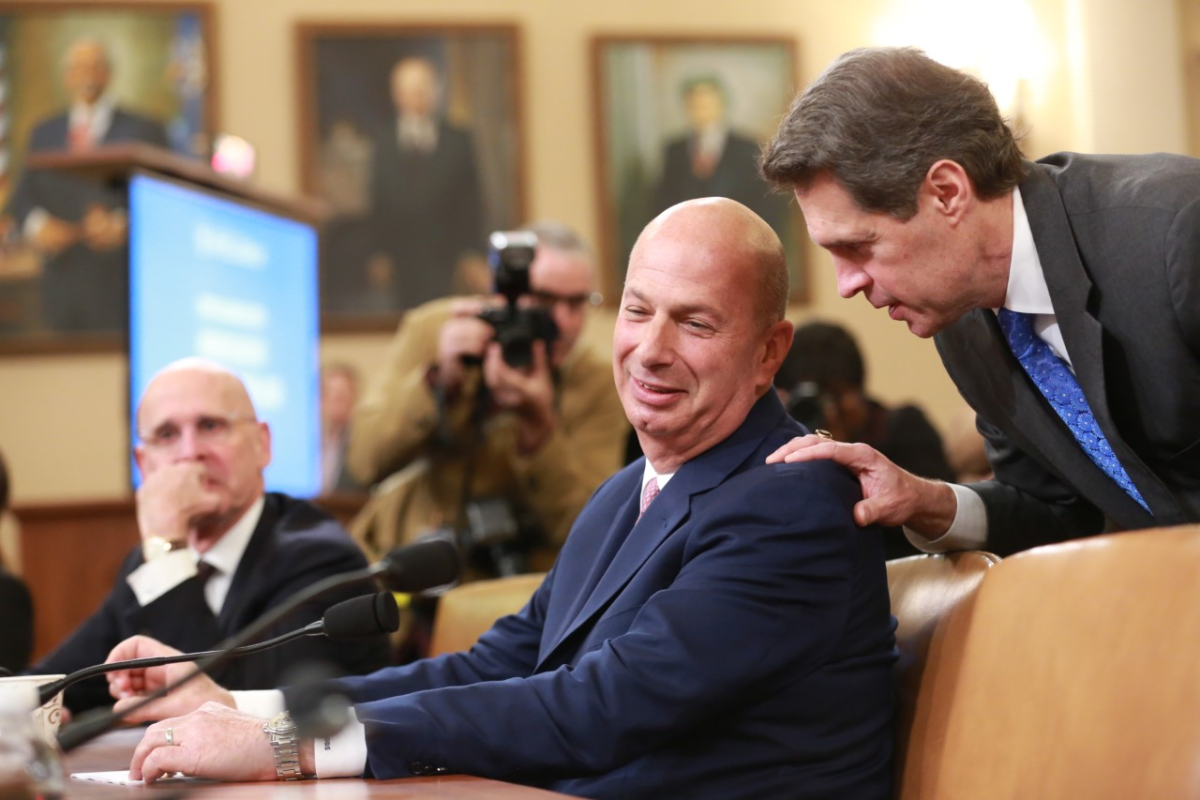
In his first comments about Gordon Sondland since the EU ambassador began testifying Wednesday, President Trump sought to create some distance.
“I don’t know him very well,” Trump said as he left the White House. “I have not spoken to him much. This is not a man I know well. He seems like a nice guy though.”
Sondland, a major donor to Trump, testified that, in keeping with Trump’s directive, a “quid pro quo” was arranged requiring Ukraine to investigate Trump’s political rivals in exchange for a White House meeting between Trump and the new Ukrainian president.
Trump’s comments to reporters came in the south driveway as he departed the White House, running nearly an hour behind schedule. The president spent much of the morning watching the Sondland hearing on TV, although Press Secretary Stephanie Grisham, who acknowledged he’d “caught some of it,” insisted he was also busy with “meetings and calls.”
Unusually, Trump did not take questions from reporters before departing, instead reading specific quotes from Sondland he believed to be exculpatory from a few pages of written notes.
Sondland says Trump never told him Ukraine aid delay was linked to investigations
Updated at 11:26 a.m. ET
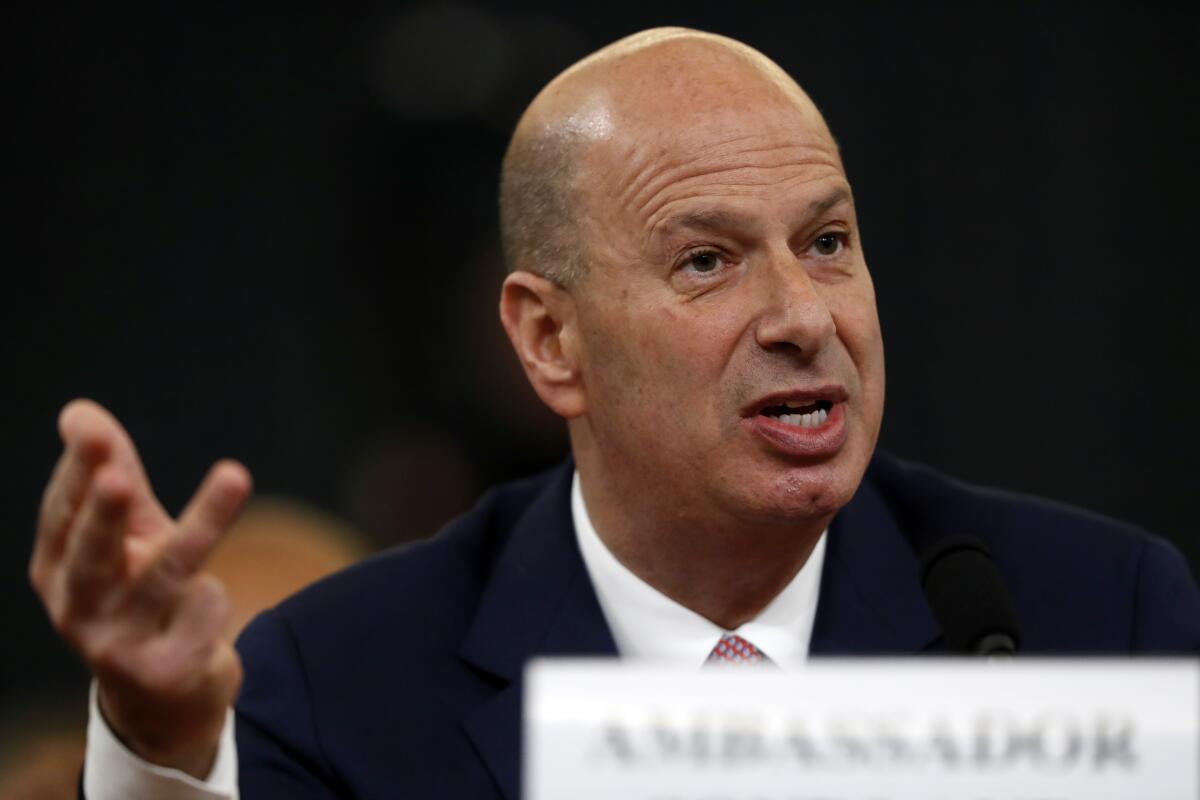
Gordon Sondland said he never heard directly from President Trump that release of the $400 million in aid for Ukraine was conditioned on the announcement of investigations into Democrats that Trump was seeking.
Sondland said he came to that conclusion — which he called a “guess” — based on conversations with Trump’s personal attorney Rudolph W. Giuliani and by closely following the process.
“I don’t recall President Trump ever talking with me about any security assistance,” the EU ambassador said.
The comment undercut Democrats’ argument that Trump was personally and directly involved in demanding the Ukrainian investigation in exchange for military aid.
But Sondland said it was “abundantly clear” to everyone closely dealing with Ukraine that there was “a link” between, on the one hand, the military aid and the proposed White House meeting with Trump and, on the other, the ally country’s announcement of an investigation into debunked conspiracy theories about Ukrainian involvement in the 2016 U.S. election.
“The only thing we got direct from Giuliani was that Burisma and the 2016 election were conditions on the White House meeting. The aid was my own personal guess, based on your analogy that two plus two equals four,” Sondland said.
More than $35 million in U.S. military aid has yet to make it to Ukraine, according to a Pentagon spending document obtained by The Times.
Sondland repeatedly said he didn’t remember key details of phone calls with the president. But he did not challenge the account of State Department aide David Holmes, who was set to testify Thursday that Sondland said Trump wanted the investigations.
Democrats aggressively challenged Sondland’s memory of those key events in an attempt to draw out how closely Trump directed Sondland’s delivery of the quid pro quo demand to the Ukrainians.
Sondland cast significant blame on Giuliani, Trump’s personal lawyer, and indicated that the former mayor was advocating for the investigations at Trump’s behest.
Sondland said repeatedly he wasn’t a note taker. By contrast, Holmes and others emphasized that they had detailed notes, a point that the Democratic counsel, Daniel Goldman, stressed.
Ukraine just had to announce investigations, not ‘do them,’ Sondland says
Updated at 10:41 a.m. ET
Undermining GOP efforts to portray President Trump’s motivations in Ukraine as largely rooted in a desire to fight corruption, EU Ambassador Gordon Sondland testified that Trump was chiefly interested in having investigations into his political rivals publicly announced, regardless of whether they actually took place.
Referring to Ukrainian President Volodymyr Zelensky, Sondland said, “He had to announce the investigations. He didn’t actually have to do them, as I understood it.”
Sondland later added, “I never heard anyone say the investigations had to start, or be completed.”
Sondland ‘came to believe’ military aid was linked to investigations
Updated 10:12 a.m. ET
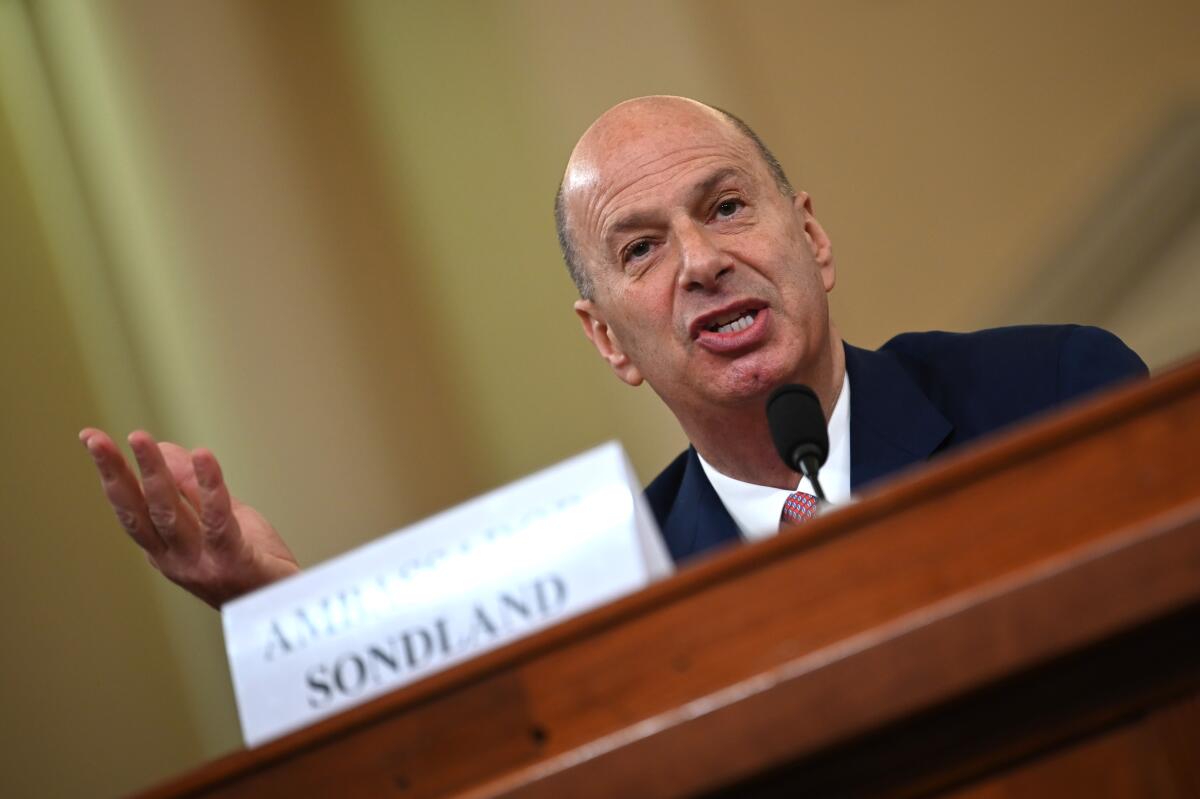
Gordon Sondland said he “came to believe” that the military aid to Ukraine was frozen until there was a public statement by new Ukrainian President Zelensky pledging to investigate debunked conspiracy theories that Ukraine interfered in the 2016 election and Burisma, the energy company that employed Hunter Biden on its board.
But, critically, Sondland in his opening statement did not explain how he came to that belief or whether anyone in the White House linked the two things.
“I tried diligently to ask why the aid was suspended, but I never received a clear answer,” he testified. Sondland said he “shared concerns of the potential quid pro quo regarding the security aid” with the Ukrainians and with Sen. Ron Johnson (R-Wis.). He said he learned of the aid being suspended “in July and August.”
“I was adamantly opposed to any suspension of aid, as the Ukrainians needed those funds to fight against Russian aggression,” Sondland said. “In the absence of any credible explanation for the suspension of aid, I later came to believe that the resumption of security aid would not occur until there was a public statement from Ukraine committing to the investigations of the 2016 election and Burisma, as Mr. Giuliani had demanded.”
White House confirms July 26 call with Trump, Sondland says
Updated at 10:05 a.m. ET
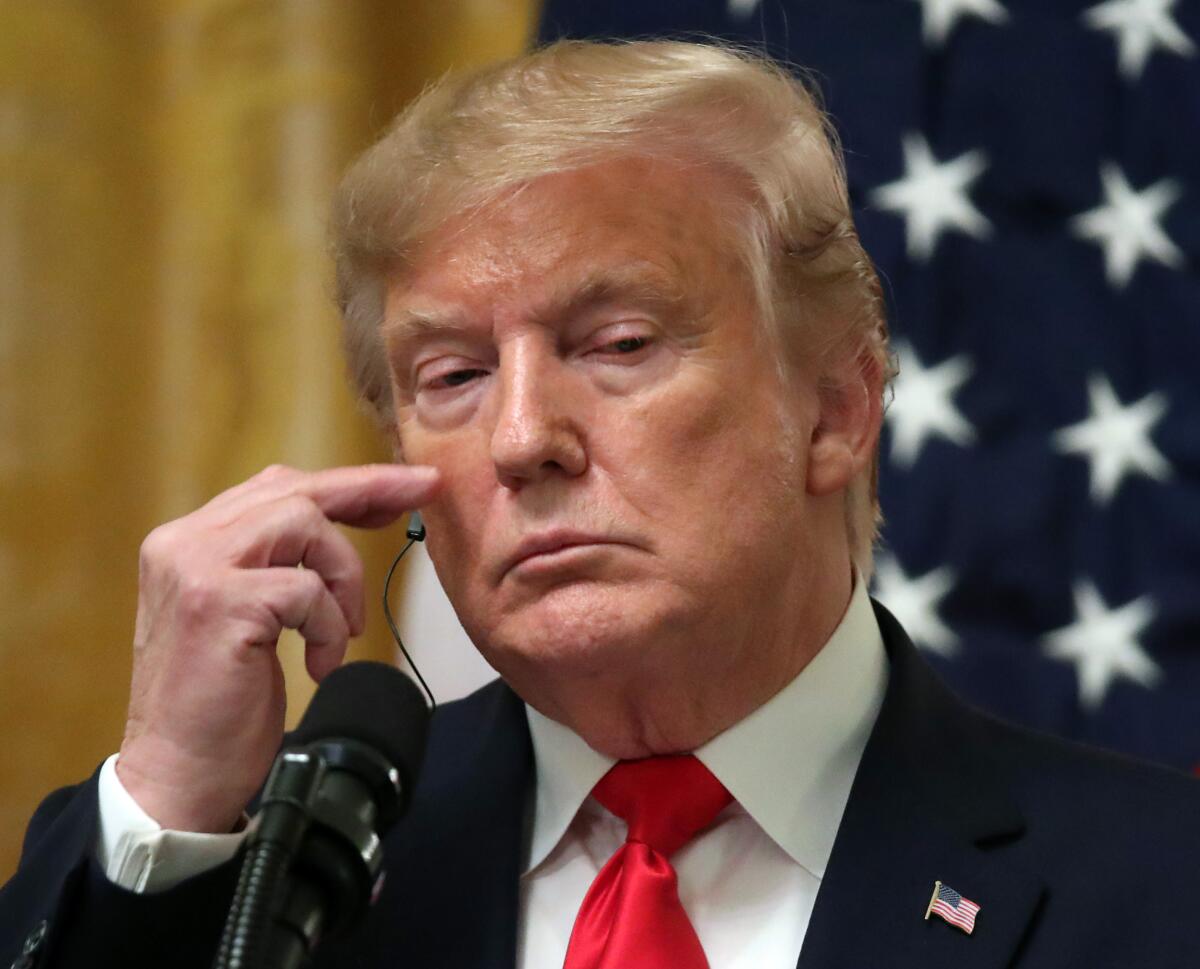
Sondland testified that the White House had confirmed to his attorneys that he spoke with the president on July 26 via cellphone from Kyiv.
Trump has said he has no recollection of the call.
Sondland said he had “no reason to doubt that this conversation included the subject of investigations.” He said the call lasted five minutes.
State Department official David Holmes testified that he overheard Trump on the phone as he sat with Sondland at a restaurant, and could hear the president asking about “the investigations.”
“Given Mr. Giuliani’s demand that President Zelensky make a public statement about investigations, I knew that the topic of investigations was important to President Trump,” Sondland said. “Actually, I would have been more surprised if President Trump had not mentioned investigations, particularly given what we were hearing from Mr. Giuliani about the president’s concerns. However, I have no recollection of discussing Vice President Biden or his son on that call or after the call ended.”
Witnesses have testified that, after the call, Sondland said Trump cared more about the investigations into the Bidens than he did about Ukraine.
Schiff issues stark warning of obstruction, including Pompeo
Updated at 9:35 a.m. ET
In his opening statement, Intelligence Committee Chairman Rep. Adam Schiff delivered his most explicit threat that House Democrats might seek to include obstruction of their investigation as one count in an impeachment resolution.
Schiff also widened the accusation of obstruction to include Secretary of State Michael R. Pompeo, who is considering running for the Senate from his home state of Kansas.
EU Ambassador Gordon Sondland’s explosive opening statement specifically points to documents he says are in the possession of the White House and State Department that would back him up. He provided new excerpts of emails and text messages to the committee Wednesday.
Sondland decried not having access to his records held by the State Department as “less than fair.”
“In the absence of these materials, my memory has not been perfect,” Sondland said. “And I have no doubt that a more fair, open and orderly process of allowing me to read the State Department records and other materials would have made this process far more transparent.”
Gordon Sondland could be the Democrats’ star witness but he has already changed his testimony, giving him a potentially serious credibility problem.
“Those documents bear directly on this investigation and this impeachment inquiry,” Schiff said, adding that they proved “the knowledge of this scheme was far and wide and included, among others, Secretary of State Pompeo and the vice president.”
Schiff directly warned Trump and federal officials that they refused to comply “at their own peril” and noted that failing to comply with Congress’ Watergate investigation made up the third article of impeachment recommended against President Nixon.
Pompeo was in Brussels on Wednesday for a NATO meeting and did not comment immediately on Sondland’s testimony. He has previously dismissed the impeachment inquiry as “noise” and a Washington “gotcha game.”
Sondland says he told Pence about link between delayed aid and demand for investigations
Updated at 9:25 a.m. ET
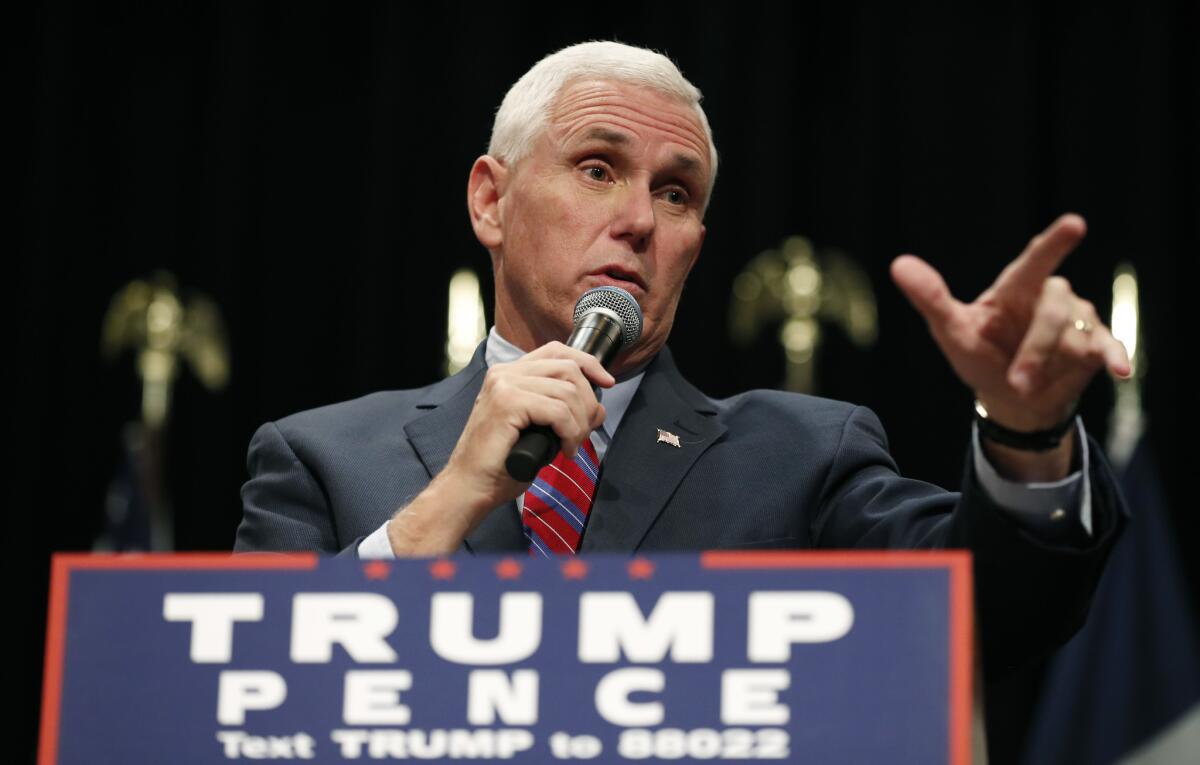
Sondland more directly implicated Vice President Mike Pence in his testimony, saying that in September he mentioned his concerns to Pence regarding the delay in $400 million in U.S. aid to Ukraine, before a meeting between the vice president and Zelensky.
Sondland said he told the vice president “the delay in aid had become tied to the issue of investigations.” He said, “I recall mentioning that before the Zelensky meeting.”
Pence has tried to distance himself from the impeachment inquiry.
Sondland: ‘Everyone was in the loop’
Updated 9:16 a.m. ET
EU Ambassador Gordon Sondland detailed several ways in which other members of the Trump administration were aware of the effort to get Ukraine to open an investigation into former Vice President Joe Biden and his son Hunter.
He detailed a July 19 email sent to Secretary of State Michael R. Pompeo, Energy Secretary Rick Perry and acting White House chief of staff Mick Mulvaney, among others, in which Sondland said President Zelensky assured him an investigation would be announced.
Gordon Sondland, U.S. ambassador to the European Union, revised his deposition and brought it more in line with other impeachment witnesses’ remarks.
The email, sent a week before a July 25 phone call between Trump and Zelensky, read: “I Talked to Zelensky just now… He is prepared to receive Potus’ call. Will assure him that he intends to run a fully transparent investigation and will ‘turn over every stone’. He would greatly appreciate a call prior to Sunday so that he can put out some media about a ‘friendly and productive call’ (no details) prior to Ukraine election on Sunday.”
Mulvaney responded: “I asked NSC to set it up for tomorrow.”
Sondland to tell lawmakers he was following Trump’s orders
Updated 9:04 a.m. ET

EU Ambassador Gordon Sondland will tell lawmakers this morning that Rudolph W. Giuliani, President Trump’s personal attorney, requested a “quid pro quo for arranging a White House visit for Ukrainian President Volodymyr Zelensky,” and was expressing the desires of Trump.
His testimony -- a stark change from his previous deposition last month -- is potentially explosive in the Democrats’ impeachment inquiry, linking the demand of an investigation to a possible White House meeting with Trump.
“Mr. Giuliani demanded that Ukraine make a public statement announcing investigations of the 2016 election/DNC server and Burisma,” Sondland will tell lawmakers according to a prepared version of his written remarks. “Mr. Giuliani was expressing the desires of the president of the United States, and we knew that these investigations were important to the president.”
Sondland will confirm that the president instructed them to work with Giuliani after the May 23 debriefing in the Oval Office and he felt he had to choice but to comply.
“We weren’t happy with the president’s directive to talk with Rudy. We did not want to involve Mr. Giuliani,” Sondland said. “I believed then, as I do now, that the men and women of the State Department, not the president’s personal lawyer, should take responsibility for Ukraine matters.”
Sondland – who has been criticized for not remembering many of the details of the events in the investigation in prior testimony – also cast blame on the State Department, which has refused to turn over documents, including Sondland’s emails.
“I am not a note taker nor am I a memo writer,” he said. “In the absence of these materials, my memory has not been perfect.”
Sondland, who had previously been seen as a Trump loyalist, was facing possible perjury charges because his version of several events differed sharply from that of other witnesses.
Anticipation about Sondland’s testimony
The Democrats’ highest-profile witness is slated to testify publicly Wednesday morning in a make-or-break moment for the impeachment inquiry of President Trump.
Gordon Sondland, U.S. ambassador to the European Union, has emerged as a pivotal link between the president and a shadow foreign policy led by Rudolph W. Giuliani, who was urging the Ukrainians to conduct investigations into former Vice President Joe Biden and his son as military aid to Ukraine was being held up.
“This impeachment inquiry will come down to tomorrow, regardless of which side you’re on, pro-impeachment or not,” Republican Rep. Mark Meadows of North Carolina said Tuesday. “His interactions were probably the ones that were closest to the president.”
Democrats hope he will show the extent to which the president was involved in the effort. But serious questions surround Sondland’s credibility because he significantly changed his testimony between the time of his closed-door deposition and when the transcript of the deposition was released to the public.
Sondland told lawmakers in a sworn statement made after his closed-door deposition that during a Sept. 1 meeting with a top adviser to the Ukrainian president, he delivered a dire message: If President Volodymyr Zelensky didn’t publicly promise an investigation, military aid and a pivotal White House meeting would not likely materialize. He called it an “anti-corruption statement.”
Lt. Col. Alexander Vindman, a National Security Council official, told lawmakers in a public hearing Tuesday that Sondland began to deliver a similar warning more than a month earlier. At a July meeting at the White House, Sondland begin to tell Ukrainian officials that they had to deliver on the investigations to get a White House meeting with Trump, Vindman said.
Sondland will be the first of three witnesses to testify Wednesday. In the afternoon, lawmakers will hear testimony from Laura Cooper, a deputy assistant secretary at the Department of Defense who specialized in Ukraine issues, and David Hale, the undersecretary of State for political affairs who was stationed in Kyiv.
Times staff writer Molly O’Toole in Washington contributed to this story.
More to Read
Get the L.A. Times Politics newsletter
Deeply reported insights into legislation, politics and policy from Sacramento, Washington and beyond. In your inbox three times per week.
You may occasionally receive promotional content from the Los Angeles Times.
